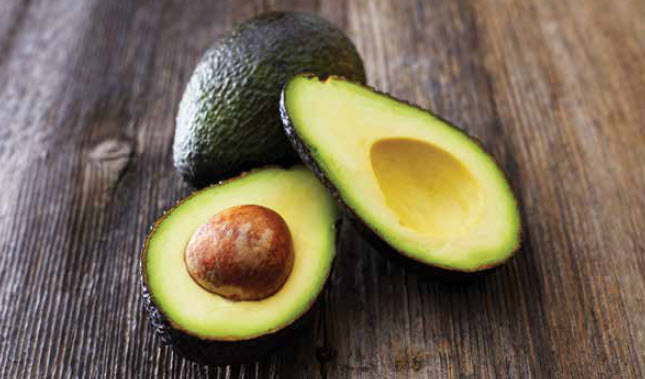Health and Fitness Avocado – More Than Just A Happy Hour Appetizer
 By: Nick Thomas
By: Nick Thomas
In recent years, the avocado has begun to get a lot more press and gain popularity. It is truly a healthy choice but needs to be understood so it can be implemented properly in your diet. You want to gain the most benefit possible from this tasty, healthy fat. Unfortunately, chowing down on chips and guacamole at your favorite Mexican restaurant once a week won’t quite cut it!
Avocados contain a wide variety of vitamins and minerals, the most important and unique being vitamin K, which is also found in a few other superfoods like broccoli, brussels sprouts, kale, and spinach. This vitamin can help lower cholesterol, build stronger bones, and relieve itching, but the most interesting thing it does is aide in the blood-clotting process, which is very useful for those who take blood thinning medication.

Another great vitamin found in avocadoes is folate, a form of vitamin B, which has a variety of benefits. Folate has been shown to help women during pregnancy, help prevent certain types of cancer, help insomnia, and may even help keep dementia and Alzheimer’s disease at bay.
One of the most surprising vitamins the avocado is packing is vitamin C. We all reach for the vitamin C when cold and flu season comes around, but the most effective way to fight off the germs and stay well is actually to boost our system by maintaining a daily intake of vitamin C, not just when symptoms arise or your kids bring home something from school. Each avocado contains roughly 100 grams, which in your daily diet can significantly enhance your immune system.
The surprises keep coming with this unique superfood. The avocado actually contains an ample amount of potassium for our daily needs as well. I know most of us think of bananas when it comes to potassium, but the avocado actually contains more. In case you do not fully understand why we need potassium daily, here are a few reasons for you. Potassium helps reduce blood-pressure levels which helps those who have or are at risk for heart problems, such as heart attack and stroke. It has even been shown to help prevent kidney failure.
Now let’s talk healthy fat and fiber. Yes, healthy fat is a thing we really do need. Certain types of fat, like monounsaturated fatty acids found in the avocado, can actually keep us healthy. These fats can boost our heart health and fight against inflammation, preventing infections. Fiber is also a very important part of our daily diet. Very few of us actually get enough fiber daily, and that is one main reason we do not feel full and tend to snack too much.

Finally, the tricky part, choosing the right avocado in the produce isle!
There are few indicators to help you make the right choice. Unless you want to eat them right away, choose a firm, green avocado with the brown “stem” still in place. Keep them in your fruit bowl on the counter at home; this is how they will ripen best, usually in just a matter of 2 to 3 days. Quick tip: If you want them to ripen faster, put them in a brown paper bag. When they are ripe, they will be much darker in color, soft to the touch, and that “stem” will just sort of fall off when touched. At this point, make sure you eat them within about 24 hours. Unfortunately, they won’t stay at peak ripeness much longer than this. Carefully cut around the fruit and remove the pit; if it is truly ready to eat, this should be very easy.
Avocado adds a nice, creamy element to so many various dishes. You can cube it right in the shell and scoop it on top of some soup, slice it and add it to your grilled chicken, or you can even just sprinkle it with some sea salt and eat it with a spoon as a great afternoon snack…and of course, you can mash it up and make some amazing guacamole; just use all fresh, healthy ingredients!
For more information regarding a personalized general or sports nutrition plan contact me at Prime Performance 423-805-0870.
By Nick Thomas
Owner of Prime Performance Training, and Certified Sports Nutritionist